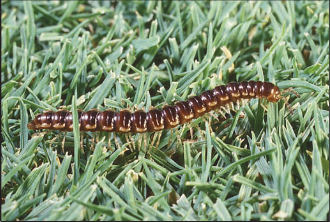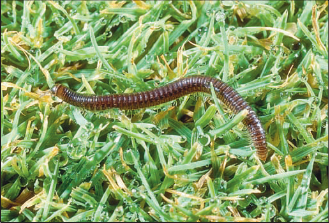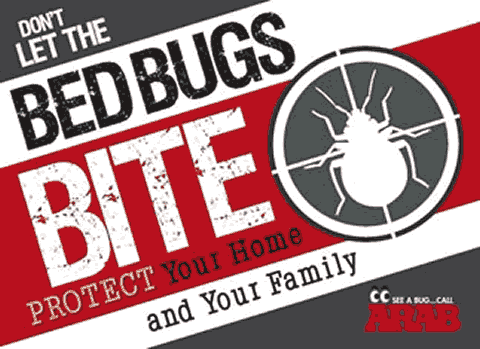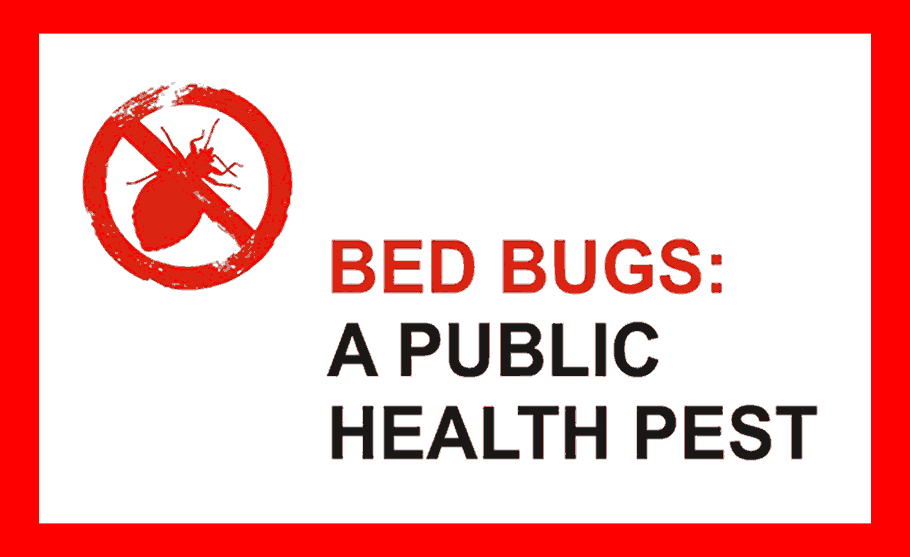Millipedes
Information provded by Ohio State University.
Millipedes normally live outdoors but may become nuisance pests indoors by their presence. At certain times of the year (usually late summer and autumn) due to excessive rainfall or even drought, a few or hundreds or more leave the soil and crawl into houses, basements, first floor rooms, up foundation walls, into living rooms, up side walls, and drop from the ceilings. Some homeowners as early as late June have reported annoying populations accumulating in swimming pools. Fall migrations during rainy and cool weather may result as a natural urge to seek hibernation quarters. Heavy continuous rainfall in newly developed wooded areas with virgin soil (decaying organic matter habitats) are often troublesome sites. Millipedes do not bite humans nor damage structures, household possessions, or foods. They can give off a disagreeable odor and if crushed, leave an unsightly mess.
Identification
 Millipedes, or “thousand-legged worms,” are brownish-black or mottled with shades of orange, red, or brown, and are cylindrical (wormlike) or slightly flattened, elongated
animals, most of which have two pairs of legs per body segment, except for the first three segments which have only one pair of legs. Antennae are short, usually seven-segmented, and the head is rounded with no poison jaws. Their short legs ripple in waves as they glide over a surface. They often curl up into a tight “C” shape, like a watch spring, and remain motionless when touched. They range from ½ to 1¼ inches long depending on the species. They crawl slowly and protect themselves by means of glands that secrete an unpleasant odor.
Millipedes, or “thousand-legged worms,” are brownish-black or mottled with shades of orange, red, or brown, and are cylindrical (wormlike) or slightly flattened, elongated
animals, most of which have two pairs of legs per body segment, except for the first three segments which have only one pair of legs. Antennae are short, usually seven-segmented, and the head is rounded with no poison jaws. Their short legs ripple in waves as they glide over a surface. They often curl up into a tight “C” shape, like a watch spring, and remain motionless when touched. They range from ½ to 1¼ inches long depending on the species. They crawl slowly and protect themselves by means of glands that secrete an unpleasant odor.
Life Cycle and Habits
 Millipedes can be long-lived, sometimes up to seven years. They overwinter as adults and lay eggs singly or in small groups in the soil. Some females lay between 20 to300 eggs (fertilization is internal), which hatch in a few weeks with young reaching adulthood in the autumn. Some reach sexual maturity the second year, while others spend four to five years in the larval stage.
Millipedes can be long-lived, sometimes up to seven years. They overwinter as adults and lay eggs singly or in small groups in the soil. Some females lay between 20 to300 eggs (fertilization is internal), which hatch in a few weeks with young reaching adulthood in the autumn. Some reach sexual maturity the second year, while others spend four to five years in the larval stage.
Millipedes are attracted to dark, cool, moist environments, usually going unnoticed in the summer due to their nocturnal habits (activity at night) and tendency to disperse. They feed on living and decomposing vegetation and occasionally on dead snails, earthworms, and insects. Slight feeding injury can occur on soft-stemmed plants, in gardens and greenhouses. They cannot tolerate water-saturated soil, which forces them to the surface and higher ground. Likewise, dry, drought conditions can stimulate migration. In the autumn, it is believed they may migrate for better overwintering sites. If one or all of these conditions exist, sometimes hundreds or thousands (shovelsful) of millipedes are found in garages, first floor rooms, and basements. Others believe that migration may occur when the food supply dwindles in October and November.
These creatures are usually abundant in compost piles and heavily mulched ornamental plantings, moving out shortly after sunset sometimes into dwellings. Over the past years, they have migrated in large numbers during a period of unusually warm weather for the time of the year (75 degrees F) and then would immediately stop when a quick drop in temperature (cold snap) occurred. Anyone handling these creatures without gloves will notice a lingering odor (hydrogen cyanide-like), and the fluid may be harmful if rubbed into the eyes. If crushed, millipedes may stain rugs and fabrics.
Contact Us ~ We can help!
Hours of operation: Monday through Friday 7:30 A.M. to 4:00 P.M. EST
Arab Pest Control, a division of Lewellen Services, Inc.
232 West Main St., Logan, OH 43138
800-654-8870
![]()
![]()


![]()
Serving Central And Southeastern Ohio Since 1980 • Family Owned And Operated• Fully Licensed By The State And Bonded And Insured. • Termite Warranties • Licensed Technicians • Extensive Training and Retraining• Uniformed Technicians• Marked Vehicles• All Pest Services Offered• Able To Tailor Services To Fit Your Needs• Convenient Hours• Polite And Courteous Staff • We Use The Up To Date Chemicals And Treatment Methods To Protect Your Family And Pets • Many Treatment Services Offered• Senior Citizen Discounts





